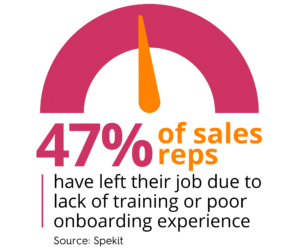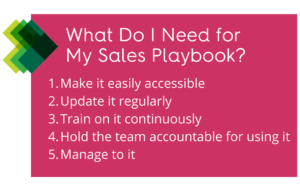Sales reps are essential in driving revenue for your agency, but their ability to close deals is only part of the equation.
In the competitive post-acute care industry, maximizing your sales reps’ time is essential to achieving success and maintaining a healthy bottom line.
So how can your reps work smarter – not harder – and focus on the right referral sources without quickly burning out?
In this blog post, we’ll explore the following:
- Why continuing education is critical for sales reps
- How to prioritize and protect your team’s time
- The power of a sales playbook and how to create one for your organization
- The right tools and technology to aid your reps in the field
- Personal coaching tips for each of your reps
Implementing these strategies will help your reps protect their time, work more efficiently and effectively, prevent burnout, and increase ROI.
Let’s dive in!
Why continuing education is critical for sales reps
The first step to protecting your reps and maximizing their productivity is to ensure they are always learning. 
Since the healthcare industry is ever-evolving – it’s crucial to provide your team with ongoing training and education to help them strengthen and learn new skills they need to succeed.
According to a recent survey conducted by Spekit – 47% of sales reps have left their job due to a lack of training or poor onboarding experience.
So, how can you ensure your sales team receives fundamental training and has productive onboarding experience?
Below are a few options you can implement:
Yearly or bi-annual sales kick-offs
During these events, your sales team can review progress, set goals for the coming year, and learn about current and new products/services.
Product certifications
These certifications can help your reps understand the products they are selling and be equipped to answer any questions or concerns referral sources may have.
Continuing education courses
Enrolling your sales reps in continuing education courses can help them stay up-to-date with sales and marketing trends – and the latest sales techniques and best practices.
Role Play
Role-playing with your sales reps can help them perfect and strengthen their sales pitches to referral sources.
Call shadowing
Sitting down with your team and listening in on their calls with referrals can help reps identify areas for improvement and learn to perfect their pitch.
Review call recordings
Analyzing call recordings and demos can help your reps learn from their mistakes, refine their sales technique, and improve the effectiveness of their calls.
Many other sales training and education strategies exist, but we wanted to give you a few proven practical examples.
No matter what training strategies you implement for your team – investing in the proper training can ensure your team is confident when connecting with referral sources and that they will continue to drive revenue for your organization.
How to prioritize and protect your team’s time
It’s crucial as a sales leader to make sure your sales reps’ time is prioritized and protected. For instance, if your team is not actively prioritizing their time in the field with the right tools to help them – then it might be wasted on visiting with referrals that aren’t a great fit for your organization and, in turn, squandering not only your team’s time but the organization’s.
Therefore, you should regularly meet with each rep to ensure they understand their goals and which top referral sources to spend most of their time with.
For example, creating dashboards inside your Customer Relationship Management (CRM) platform with your rep’s targeted goals and the organization’s Key Performance Indicators (KPIs) can help them manage their time and ensure they are on track for their monthly, quarterly, and annual goals.
In addition, when meeting with each rep, it’s essential to check in and discuss any “stucks” they may have and continuously review goals and update them as needed.
The power of a sales playbook
Your team needs to have a well-established sales playbook in place, serving as a constant point of reference and a guiding principle for their sales execution.
If your team has one in place, it can be easier for your reps to stay organized and understand what processes they need to follow. It’ll take a lot more time and energy to determine what each sales rep is doing than sitting down and creating a sales process for your team to follow.
Below are five best practices for developing a sales playbook:
- Make it easily accessible
- Update it regularly
- Train on it continuously
- Hold the team accountable for using it
- Manage to it
Tip: The process will set you free. By creating a process, you, as a leader, can ensure everyone on your team has the same starting point where they can work.
A sales playbook allows you to be more efficient when coaching individual reps as they all have the same foundation and enable them to spend more time in the field and not waste it by figuring out what they need to accomplish for each referral.
The right tools and technology to aid your reps in the field
If your sales reps don’t have the right tools and technology to help them in the field – it’ll be harder for them to prioritize their time and maximize productivity.
For instance, in the post-acute care industry, sales leaders have helped their team protect their time and succeed by utilizing high-quality market data integrated with a Customer Relationship Management (CRM) platform.
Customer Relationship Management (CRM)
With an industry-specific CRM, your reps can easily keep track of notes, conversations with referrals, and next steps. They can also manage their referral assignments and efficiently manage their time and activities inside the CRM.
In addition, a CRM can help your reps shorten their sales cycle. As mentioned above, your team can easily document notes inside the CRM to track what was said with the referral.
For example, after your rep has a meeting with the referral, they document key takeaways from the call – then when they have the second call with the referral, reps aren’t spending the first 10-15 minutes repeating what was said in the first call – therefore they aren’t wasting time and instead focusing on closing the sale.
Data-Driven Conversations
Implementing high-quality market data in your reps’ conversations with referrals is an essential strategy. Referrals aren’t impressed with just the coffee and donuts anymore. Your reps need to stand out above the competition in your market.
For example, utilizing market data in their conversations lets your reps showcase your organization’s unique value and how you compare to your competitors.
By implementing a physician talk track – your reps are armed with the right data to gain top referral attention and stand out above the competition.
With a CRM platform and data-driven conversations – your sales reps can maximize their productivity, protect their time, drive revenue growth, and stay ahead of the competition.
Personal coaching tips for each of your reps
Below are a few ways to help your sales reps grow individually:
1:1’s
1:1 meetings with your sales reps can allow open discussions and personalized coaching. These sessions allow time for your rep to review any “stucks”, seek guidance, ask for career advice, and receive feedback on their performance.
Stand-up meetings
Stand-up meetings or daily huddles are short meetings with your whole team where they can share updates on their tasks, progress for the day, and any stucks they may be facing. These meetings allow your team full transparency, alignment, and collaboration. They help the whole team prioritize time, maximize productivity, and ensure support among the team.
Pipeline review sessions
Pipeline review sessions are for you and your team to analyze the sales pipeline and discuss opportunities that are currently sitting in the pipeline. These meetings can help assess the quality and quantity of your leads, identify bottlenecks, and develop strategies to help move the pipeline along. In addition, these sessions allow your team to stay organized, prioritize their efforts, and ensure the pipeline is progressing efficiently and effectively.
Remember: Your sales reps need your support to prioritize their time and focus.
Regularly checking in on your reps and setting time aside to ensure they have the necessary tools, resources, and training are essential steps to protecting your sales reps and maximizing their time – while avoiding burnout.
Putting it into practice
Throughout this blog post, we have explored several key strategies to help sales reps work smarter, not harder. We discussed the importance of continuing education, prioritizing and protecting their time, leveraging the power of a sales playbook, utilizing the right tools and technology, and providing personal coaching tips.
By implementing these strategies, your sales team can protect their time, work more efficiently and effectively, avoid burnout – and ultimately increase your ROI.
Want to learn more about maximizing your sales reps’ time and productivity? Check out our webinar on leadership tools to boost productivity, here!
















